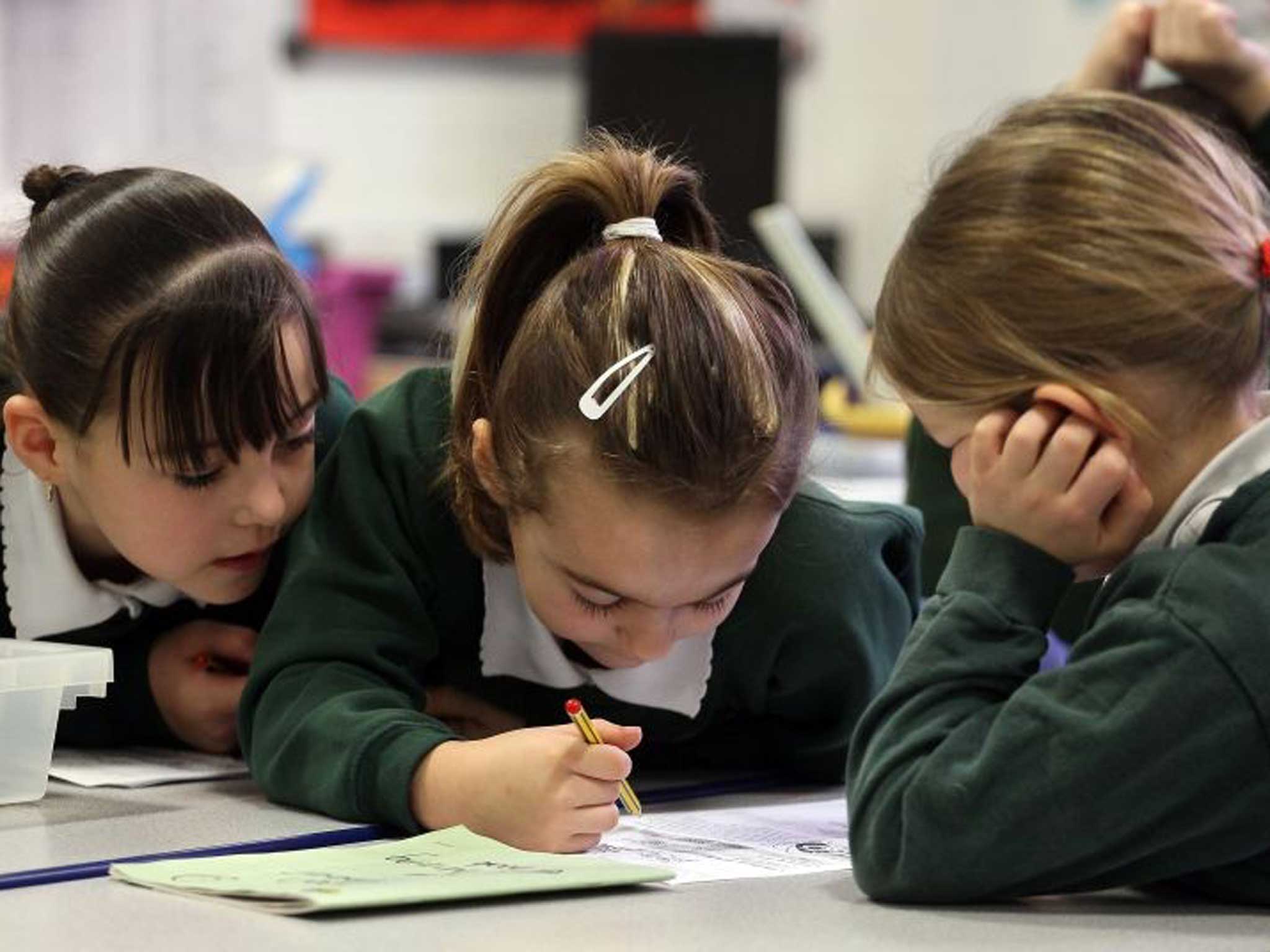
My car stopped in traffic the other day by a bus stop at which a young mum sat, earphones in, checking her messages. Her toddler sat in a buggy, unable to see his mother, staring blankly at the road. On the car radio, some expert was talking about how many children were arriving at school with language difficulties because their parents no longer chat to them. Electronic gadgets, the radio voice intoned, may be to blame for a 70 per cent jump in speech problems in six years.
A few days later, the news was of how thousands of children turn up for their first day at school wearing nappies. In 5 per cent of cases, this lack of toilet training extends beyond the age of seven. Some parents are too busy, idle or selfish to bother with potty training, one teacher was quoted as saying. Many children arrive at school unable to hold a knife and fork or brush their teeth.
Last week, Ofsted said that white working-class children in British schools are “consistently the lowest performing group in the country”. The gap has grown over the past five years. Today 26 per cent of white boys on free school meals get five good GCSEs compared with 40 per cent of black boys and a national average of 63 per cent. Teachers’ unions say poverty is the problem. But poor Indian, Pakistani, African and Caribbean kids do much better. In poor Chinese families, 76 per cent get the benchmark GCSEs.
So what is going wrong? Select your prejudice and it comes with a ready explanation. It is 60 years of multiculturalist bias towards ethnic minorities, say the right. It is a white working-class culture with “low aspirations and negative attitudes towards education”, says Ofsted. No, says the anti-poverty Joseph Rowntree Foundation: it’s not poor aspirations but a lack of self-belief among whites in areas where traditional industrial jobs disappeared three generations ago.
It is, cultural conservatives suggest, a soporific prole culture in which the Xbox is the new opiate of a jobless caste marooned in their own homes, and for whom Jeremy Kyle is the new bread and circuses. These are the folk Tesco in Cardiff banned from shopping in pyjamas – which have also been forbidden on the school run in Middlesbrough, where one teacher told me she overheard children playing house, saying: “It’s the police. Hide the drugs in the washing machine.”
And yet it is not the working class, or underclass, that needs demonising here. A study by the Runnymede Trust entitled Who Cares about the White Working Class? argues persuasively that populist narratives about the plight of poor whites largely leave the hierarchical and highly stratified nature of Britain out of the equation. The wider problem is something more general in our atomising culture.
Someone who had been an au pair told me a disturbing counter-story. After three weeks, the mother of her affluent Home Counties family left her four- and eight-year-old daughters in the hands of a comparative stranger while she flew out for a week to join her airline pilot husband during a stopover. The recently arrived au pair, having exhausted her limited knowledge of things to do, took the kids to the cathedral where there was a Christingle service. Afterwards, clutching her clove-studded orange, the eight-year-old commented sardonically: “Well, I’m glad to know that someone loves me, even if it’s only God.”
“We are Oxford classicists,” one couple told a teacher, to explain why their child was not toilet trained. Neglect by middle-class parents can be covered by the purchase of nannies and boarding schools. It may leave deep emotional scars but the problems are largely private. They do not, at any rate, seem to land on the desks of government ministers who see underachievement by poor whites as a threat to Britain’s chances of keeping up in a global market where education is the gateway to employment more than ever before.
There are many education department responses to that: longer school days, texting parents to engage them with homework, financial incentives for pupils, and educating parents in the skills they need to help their children learn. There are even plans for classroom dictation software so kids can read on their tablets what the teacher just said when they weren’t listening. “The technology enables this to be non-judgemental,” the sales blurb claims.
Yet perhaps it is the insistence on being non-judgemental which is the problem. A friend who is a teacher in a poor area recently went with a social worker to visit the home of a pupil who was giving cause for concern. When they got there they found him running naked round a house in which there was no food and where there were maggots in his bed. When the teacher expressed horror, the social worker pronounced: “It would be better if you didn’t bring moral outrage into this.” Perhaps it would be better if we did.
Paul Vallely is visiting professor of public ethics at University of Chester


Join our commenting forum
Join thought-provoking conversations, follow other Independent readers and see their replies